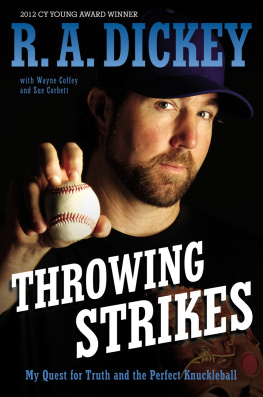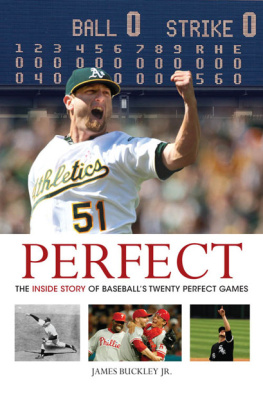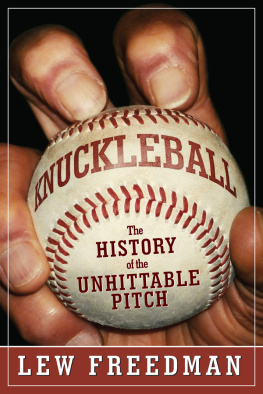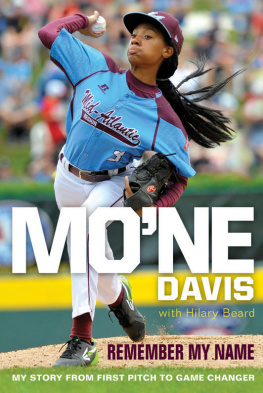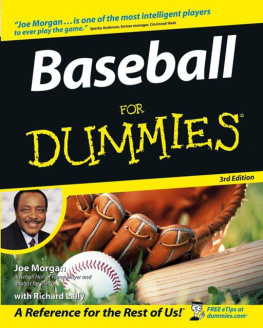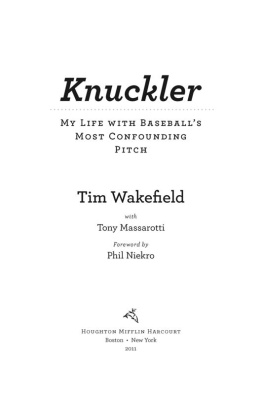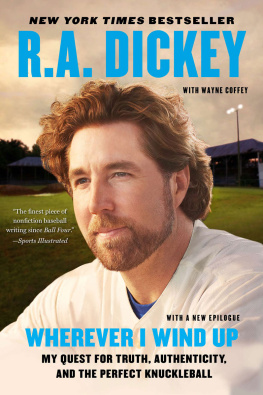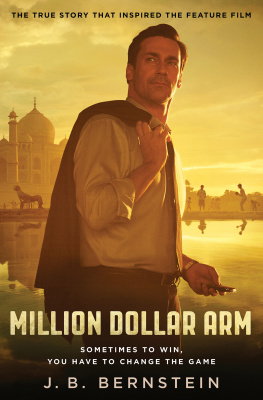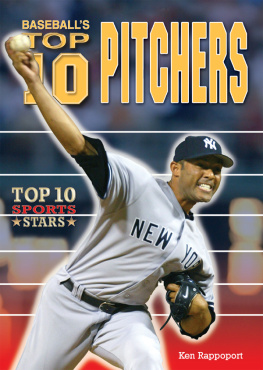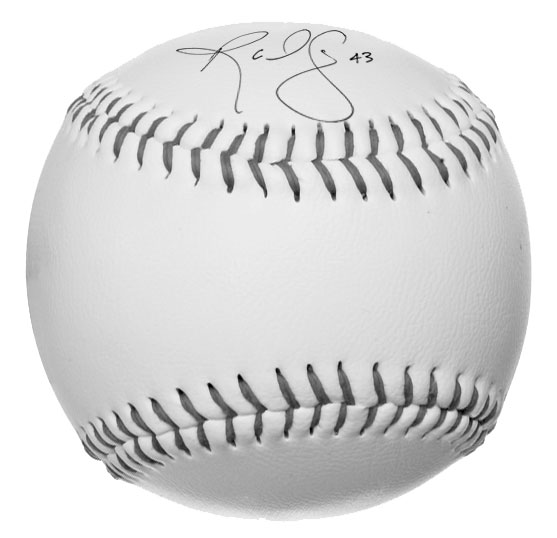USA / Canada / UK / Ireland / Australia / New Zealand / India / South Africa / China
Copyright 2013 by R. A. Dickey
All rights reserved. No part of this book may be reproduced, scanned,
or distributed in any printed or electronic form without permission.
in violation of the authors rights. Purchase only authorized editions.
Sidebar image of R. A. Dickey courtesy of Marc Serota/Getty Images Sport/Getty Images
Baseball image on chapter opening pages courtesy of Luis Carlos Torres/Shutterstock
Prologue
THE BEST SEASON OF MY LIFE
I t is September 27, the day of my thirty-third start for the 2012 New York Mets. It has been another disappointing year for the teama strong first half followed by a spirit-crushing collapse after the All-Star break. Were twenty-three games behind the Washington Nationals, too far back to contend for a wild card, even this year, when, for the first time, there are two spots.
Its a home game, our last of the season, but being home is not necessarily a plus. We have played miserably at Citi Field. Under the circumstances, it wouldnt be a surprise if the vendors outnumbered the spectators as we played out the string at this mid-week, afternoon game in late September.
Instead, there are thirty thousand people here. The press corps is out in force. And though Im uncomfortable boasting, most of them are here because I am the starting pitcher. On the huge electronic marquee outside the stadium, there is only one announcement: R.A. GOES FOR 20 TODAY. Its so big, people on planes landing at LaGuardia Airport can see it from the air.
Twenty wins is the pinnacle for modern-day baseball pitchers. No Mets pitcher has won that many since Frank Viola went 20-12 in 1990.
Gio Gonzalez, the Nationals young flamethrower, already has twenty wins, but no other pitcher in the National League has nineteen wins yet. At the moment, I lead the league in ERA, complete games, shutouts, and innings pitched. The baseball writers are predicting that Gio and I are the frontrunners for the Cy Young Awardgiven to the best pitcher in the National League. Its hard to get my mind around that.
In a month I will be thirty-eight years old, an age at which most of the guys I came up through the minors with have gotten used to being described with the word former in front of the words major-league player.
Twenty wins in a season is a superlative effort for any pitcher, but for me, its more than that. Its redemption. Before this year, I had won a total of forty-five games in the major leagues, despite having been a first-round draft pick, way back in 1996. Just two years ago, when I first started writing this book, I wrote these words and thoroughly believed them: I will never lead the league in strikeouts.
As I take the mound to go for my twentieth win, I am leading the league in strikeouts.
It is seven years since my reinvention began. Six full seasons since I turned myself into the baseball equivalent of a carnival actmaybe not a two-headed turtle or a bearded lady, but close.
I became a knuckleballer.
You become a knuckleball pitcher when you hit a dead end, when your arm gets hurt or your fastball loses its velocity. Tim Wakefield was a minor-league first baseman with a lot of power but a weak batting average when he made the switch. I made mine when the Texas Rangers told me, in the middle of 2005, that I was going nowhere with my regular stuffan assessment I could hardly argue with.
To say that I did not succeed immediately is understating things by quite a bit. In my debut as a knuckleballer, a 2006 game against the Detroit Tigers, I didnt make it out of the fourth inning, giving up seven runs on eight hits. Six of those hits were home runs, tying the modern record for most home runs given up in a start. Thats a record nobody is chasing.
But six years later on this beautiful September day, as I walk in from the outfield with Josh Thole, wholl be catching me today, and Dan Warthen, the Mets pitching coach, the fans in the seats just above the Mets dugout rise to their feet.
I can honestly tell you I have never gotten a standing ovation before a start until today.
The first batter up for the Pirates is their rookie left fielder, Starling Mart. I strike him out on three straight pitches. All knucklers. I take the next batter, second baseman Josh Harrison, to a 2-2 count before he lines out to Andres Torres in center field. Then the dangerous Andrew McCutcheon, who is battling Buster Posey of the San Francisco Giants for the batting title and has as much at stake today as I do, flies out weakly to Ruben Tejada.
Twenty-four outs to go. I get another standing ovation as I head to the dugout. The crowd is chanting: Cy Young, Cy Young. I keep my head down, trying to keep my focus.
How did I get from that epically horrible night in Arlington, Texas, to this incredible afternoon in Flushing Meadows? It took work, and not just work on mastering the fluttery delivery of the knuckler.
I had to overcome fear.
Fear that I wasnt good enough, that I didnt belong. Fear of people figuring that out. I have long had faith in God. What I had to find was faith in myself, and in the knuckleball.
The fact that Im going for my twentieth win tells you Ive turned it around. What it doesnt tell you is that it wasnt easy.
Chapter 1
LIFE BEGINS, ACCIDENTALLY
I f you want to put it in baseball terms, you could say I was born with a strike against me. My parents didnt get married because they were hopelessly in love. They got married because my nineteen-year-old mother was pregnant with me.
Its not the ideal way to start a marriage, or a babys life. Barely more than kids themselves, Harry and Leslie Dickey were still struggling to make ends meet, living in a part of Nashville crammed with pawnshops, used-car lots, and fast-food joints. The monthly rent for their apartment was $175 and they got what they paid for. The walls needed paint; cockroaches had their run of the place. Shortly after my parents scraped together enough money to move out, a particularly troublesome neighbor diedof a drug overdose.

